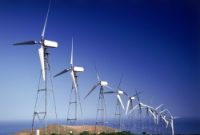States Ask EPA to Delay CPP Incentive Program
The attorneys general (AGs) of states that successfully petitioned the U.S. Supreme Court to stay EPA’s Clean Power Plan (CPP) while litigation on the CPP proceeds in the U.S. Court of Appeals for the D.C. Circuit are now asking the Agency to extend by at least 60 days the current August 29, 2016, deadline for […]










